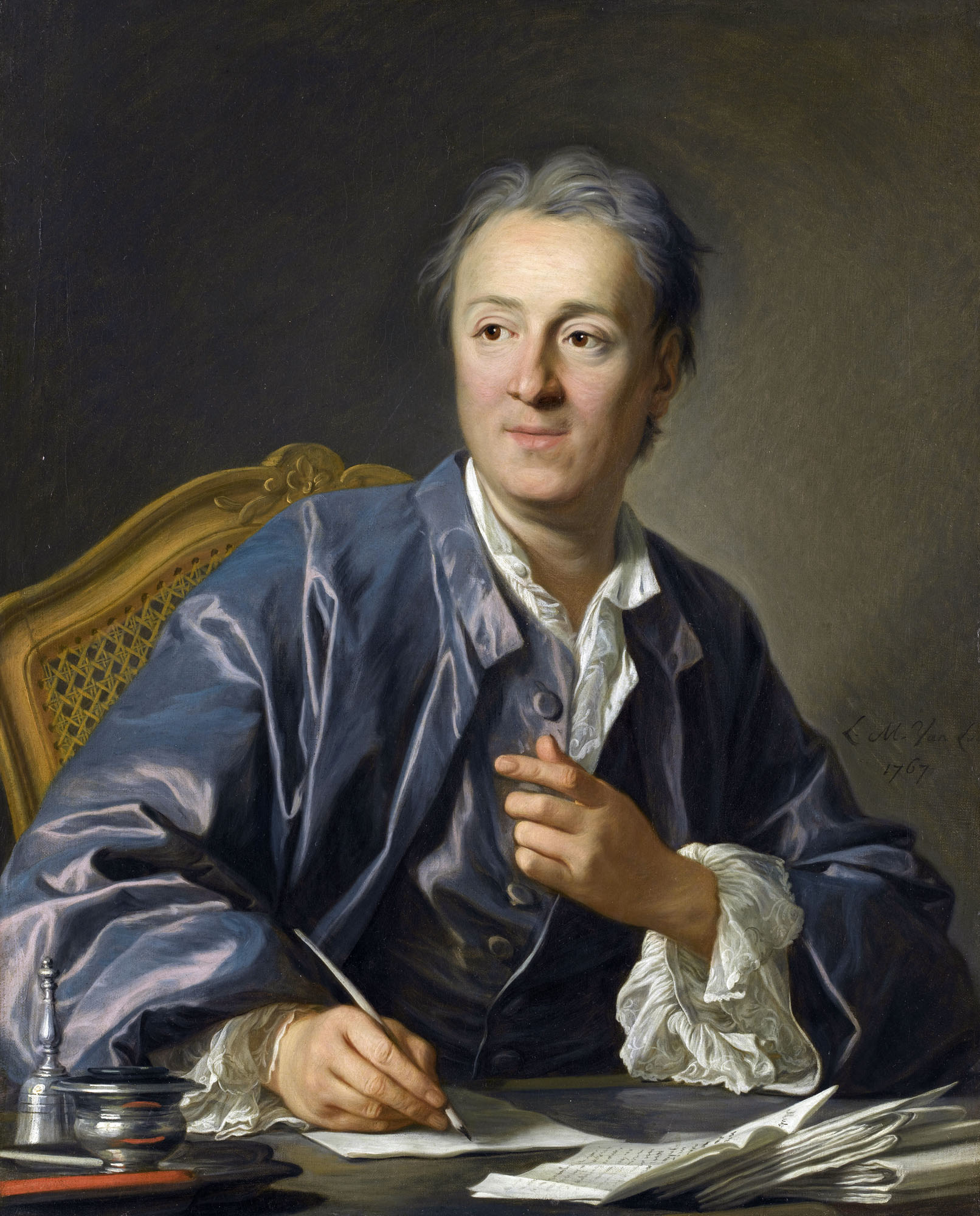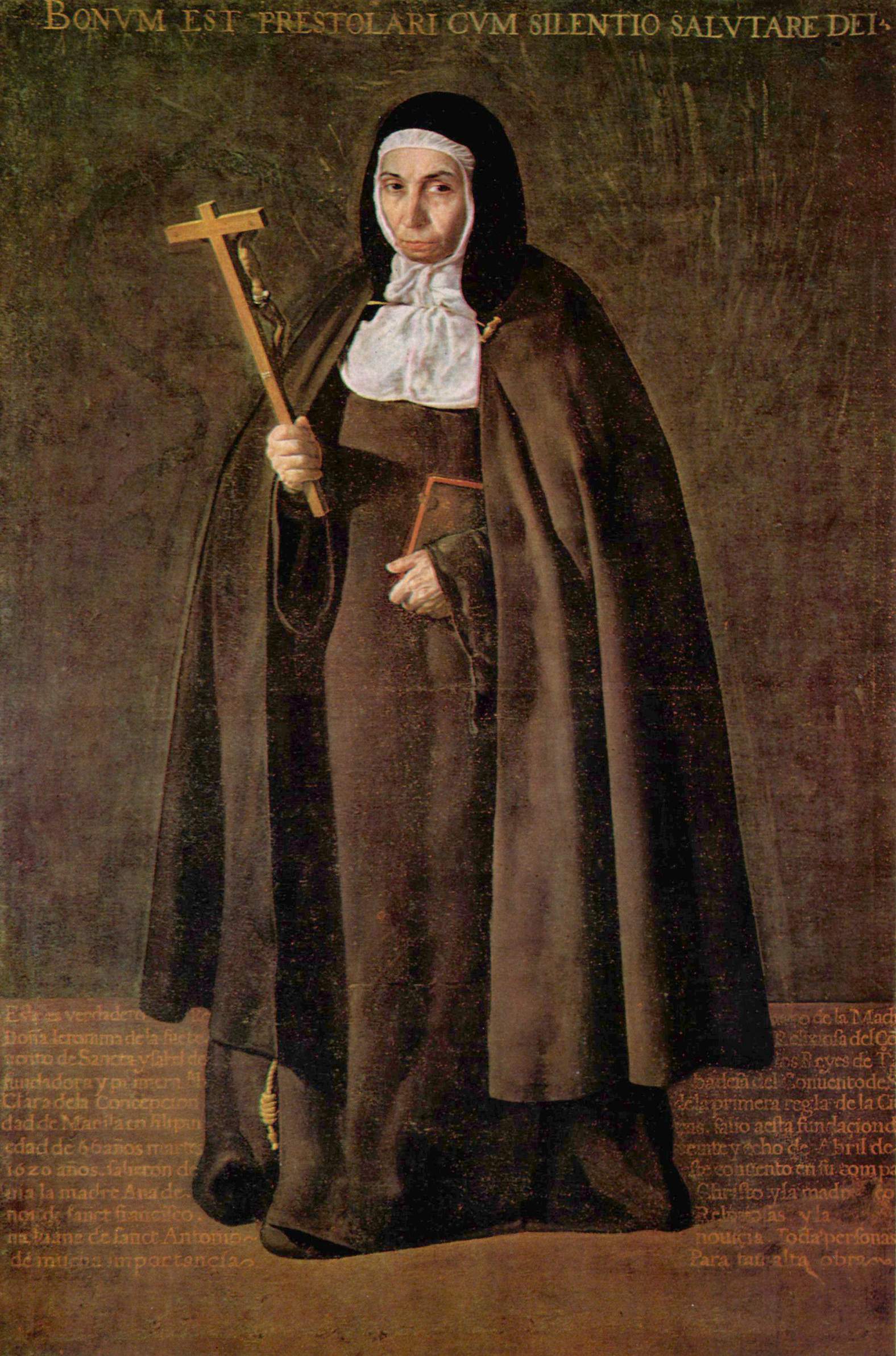I suspect that the idea of writing about French convent life in the early 18th century had occurred to the brilliant philosopher, writer and "Encyclopedie" founder and editor-in-chief Denis Diderot long before the spring of 1758 when the dismal news of a young nun's misfortunes reached and scandalised Madame d'Epirey's progressivist Parisian salon circle. Diderot had never forgotten his own beloved sister's sad fate within the confines of an Ursuline convent at Langres, where she'd been secluded her whole life due to delicate mental health. The story of Marguerite Delamarre, the nun whose woes began at the age of three when her parents sent her to a convent where she would remain until her death, despite tireless and desperate efforts to escape a life of privation and sacrifice there.
|
Author: Maira Herrero, |
 |

I suspect that the idea of writing about French convent life in the early 18th century had occurred to the brilliant philosopher, writer and "Encyclopedie" founder and editor-in-chief Denis Diderot long before the spring of 1758 when the dismal news of a young nun's misfortunes reached and scandalised Madame d'Epirey's progressivist Parisian salon circle. Diderot had never forgotten his own beloved sister's sad fate within the confines of an Ursuline convent at Langres, where she'd been secluded her whole life due to delicate mental health.
The story of Marguerite Delamarre, the nun whose woes began at the age of three when her parents sent her to a convent where she would remain until her death, despite tireless and desperate efforts to escape a life of privation and sacrifice there. Her desperation led her to seek help down every ecclesiastical and civil avenue within her reach but all her efforts came to nothing and she died without ever savouring the liberation she so desperately craved. The news had such a spiritual impact on a free-thinker friend of Diderot's, the marquis of Croismare, that he tried his utmost to help the impoverished nun with his time and money, albeit, again, to no avail. This incident, coupled with his deep-seated uneasiness about the then-customary practice of locking away young women lacking wealth or good looks behind convent bars, became the perfect excuse for him to write this unusual novel: "I write on the spur of the moment. I put pen to paper on The Nun and at three in the middle of the night, I was still writing. It's no longer a letter, it's a novel. It will contain truths, pathetic truths." This is how Diderot described the initial stages of his book, written in a direct style, almost report-like but without losing its dramatic powerand conferring on the work a mark of authenticity that reveals the terrible background to a reality only just coming to light.
The Nun is an authentic treatise on 'woman' wherein Diderot looks deeply into certain problems of our human existence, the ones that continue to plague us despite the world having changed radically. France, the most intellectually and culturally developed country in the second half of the 18th century, continued for a long time to uphold the moral dictates of the Ancien Regime. The established social order would take a long time to adopt the premises of the Enlightenment. The Nun is a story in epistolic form, written in the first person by its protagonist Suzanne Simonin, a beautiful and intelligent young woman who finds herself deprived, against her will, of the life she had been destined for. Suzanne's voice denounces issues as universal as the role of women in society, the hidden goings-on in convents and religious orders, the shame and blame fanaticism of the Church and the cynicism of an intolerant society of the day.

The crux of the novel's question is in the protagonism of 'woman' and her quest for independance by means of the idea of having self-defined, free thought and the liberty to exercise it. Being faithful to oneself, not taking on others' blame, not taking God's name in vain are just a few of the reflective themes of this novel. Basic moral dilemmas that are still pertinent in our modern society and which serve Diderot's purpose of converting one individual's lived experience into the central analysis of everyone else's in the world at large.
We are not here confronting the existence, or not, of an authentic God. Neither are we doubting faith in itself. Rather, we are denouncing a religion that denies what is the most precious thing for wo/mankind: namely, liberty. Diderot's anti-clericalism here references the stifling of free choice and the imposition of, under the auspices of God's will, an enforced, cruel and sordid existence, with its inevitable consequences. The novel is quite the treatise on female behaviour in the face of arbitrarily and definitively imposed obligations by a society that sought to control and desexualize them. It is also a cry for tolerance. Enforced vocational holy orders, lives devoid of dignity, work with no apparent point to it: all are in the mix here along with fanaticism, melancholy, hysteria, sexuality, reclusion and the dogmatic cruelty of a dark, out-of-control world warning of eternal damnation. All of which were and are alien to individual values and reason, as espoused by Enlightenment advocates.
From 1780 onwards, the novel appeared in instalment form in Grimm's Literary Correspondence, a handwritten newspaper-like publication accessible only to a small group of European aristocrats. It would not be printed for a public readership until 1796, more than 10 years after Diderot's death and too late for the author to mount a defence against the heated controversy it caused.
It is worth not forgetting that Denis Diderot was one of the figures who did most to radically change the mentality of the civilised world. As one of the great and universal Enlightenment pioneers, he elaborated his interest in anything and everything with great wisdom and originality. His thinking has stood the test of time against the great challenges of modern history with exquisite and exceptional prose writing and he continues to be a guide to understanding the vagaries of life and and our own involvement in them. One doesn't have to 'read between the lines' to realise the ongoing pertinence and sense of this work since Denis Diderot first started writing it over 250 years ago.
The Nun by Denis Diderot, published in English by Oxford University Press, Penguin Classics and Folio Society
(Translated from the Spanish by Shauna Devlin)

